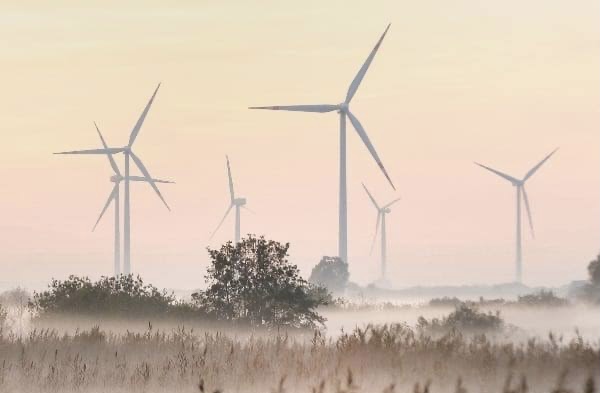The Northern Cape of South Africa, with its abundant solar exposure and significant wind energy potential, is set to become a pivotal player in the country’s renewable energy sector. This vision was emphasized by the Minister in the Presidency for Electricity, Dr. Kgosientsho Ramokgopa, during a recent event celebrating the commencement of commercial operations at a state-of-the-art solar and battery energy storage facility in Kenhardt.
This facility, which combines 540MW of solar power with 225MW/1,140MWh of battery storage, ranks among the world’s largest hybrid solar and battery storage facilities. The project has been brought to fruition under the technology-agnostic Risk Mitigation Independent Power Producer Procurement Programme (RMIPPP), an initiative of the Department of Mineral Resources and Energy aimed at diversifying and securing South Africa’s energy supply.
Constructed at a cost of around $1 billion, the energy generated by this project will be sold to Eskom under a 20-year Power Purchase Agreement (PPA). The significance of this project extends beyond its capacity to generate renewable energy; it also acts as a beacon of economic potential for the region. Scatec ASA, the majority stakeholder, holds 51% of the equity, while H1 Holdings, a local Black Economic Empowerment partner, holds the remaining 49%.
During the construction phase, the project created over 2,000 jobs, underscoring the substantial employment potential associated with renewable energy projects. However, as Dr. Ramokgopa pointed out, these job numbers tend to diminish once the facilities become operational. This highlights the transitional nature of employment in large-scale energy projects and brings to the forefront the need for sustainable job solutions that extend beyond the construction phase.
Dr. Ramokgopa stressed the importance of transforming short-term job creation into long-term economic opportunities. This involves a shift in perspective from merely viewing the Northern Cape as a host for renewable projects to seeing it as a central hub within the national renewable energy network—a hub that can spur the creation of new industries and sustain economic growth.
He advocated for what he termed the “domestication” of investments. By this, he means integrating these large-scale investments into the local economy more holistically, ensuring they have a lasting impact. This approach is about more than just generating electricity; it’s about leveraging the investments to stimulate local industry, enhance skill development, and create enduring job opportunities.
The discussion on investment in the Northern Cape is set against a backdrop of significant financial commitment, with approximately 60% of close to R260 billion invested in the province’s renewable sector. The challenge and opportunity lie in ensuring that these investments translate into visible, tangible benefits for the local communities.
As the renewable energy sector grows, the Northern Cape could potentially see the rise of new industries that are complementary to energy production, such as manufacturing components for wind turbines or solar panels, or developing expertise in battery technology and energy storage solutions. These industries could provide the basis for a more sustainable economic model in the region, one that offers a variety of employment opportunities and helps stabilize the local economy.
The overarching theme of Dr. Ramokgopa’s message is clear: the integration of renewable energy projects can and should lead to the broader socio-economic transformation of the Northern Cape. This transformation will depend heavily on the ability of both provincial and national governments to foster environments that encourage the establishment and growth of new industries.
In conclusion, while the Kenhardt project marks a significant advancement in South Africa’s journey toward renewable energy, it also serves as a catalyst for broader economic development in the Northern Cape. The future will likely require continued advocacy, innovative thinking, and collaborative effort to ensure that the promise of renewable energy as a driver of economic development is fully realized. The path forward involves not just planting the seeds of technological advancement but nurturing the growth of a robust economic ecosystem that can sustain the province and its people long into the future.
Source: ESI Africa



